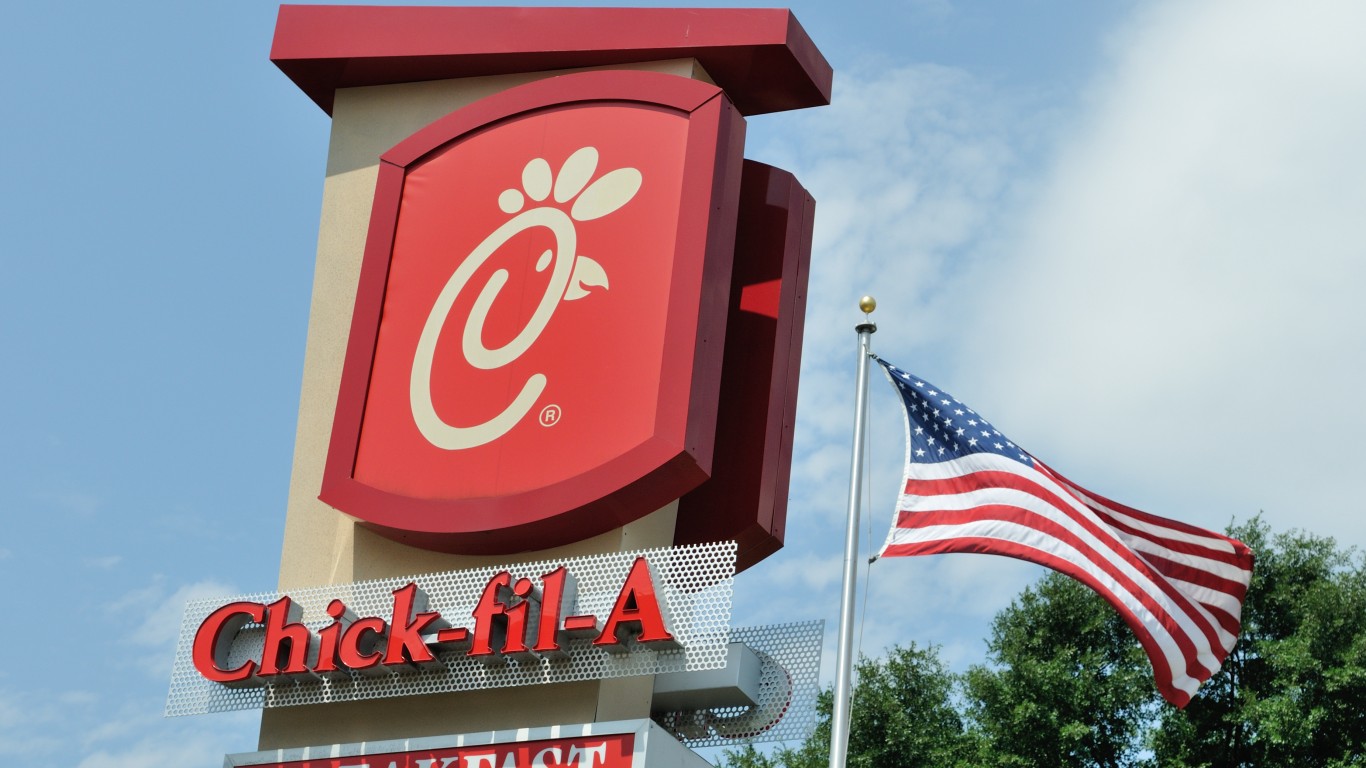
Few fast-food restaurants are as polarizing as Chick-fil-A, and as a result, some people have ultimately decided not to eat there! If you were looking to avoid this fast-food chicken joint, look no further: we’ve created a list of some of the best reasons to avoid Chick-fil-A today. At the end of the day, it’s still one of the best places for a chicken sandwich and fantastic customer service, but that doesn’t mean it’s for everyone! Let’s take a look at some of the reasons you may want to avoid Chick-fil-A going forward.
To compile our list, 24/7 Wall Street writers reached for (ample) personal experience and used some editorial discretion. Additionally, public news stories were used to determine certain elements on the list.
1. It’s Closed On Sunday
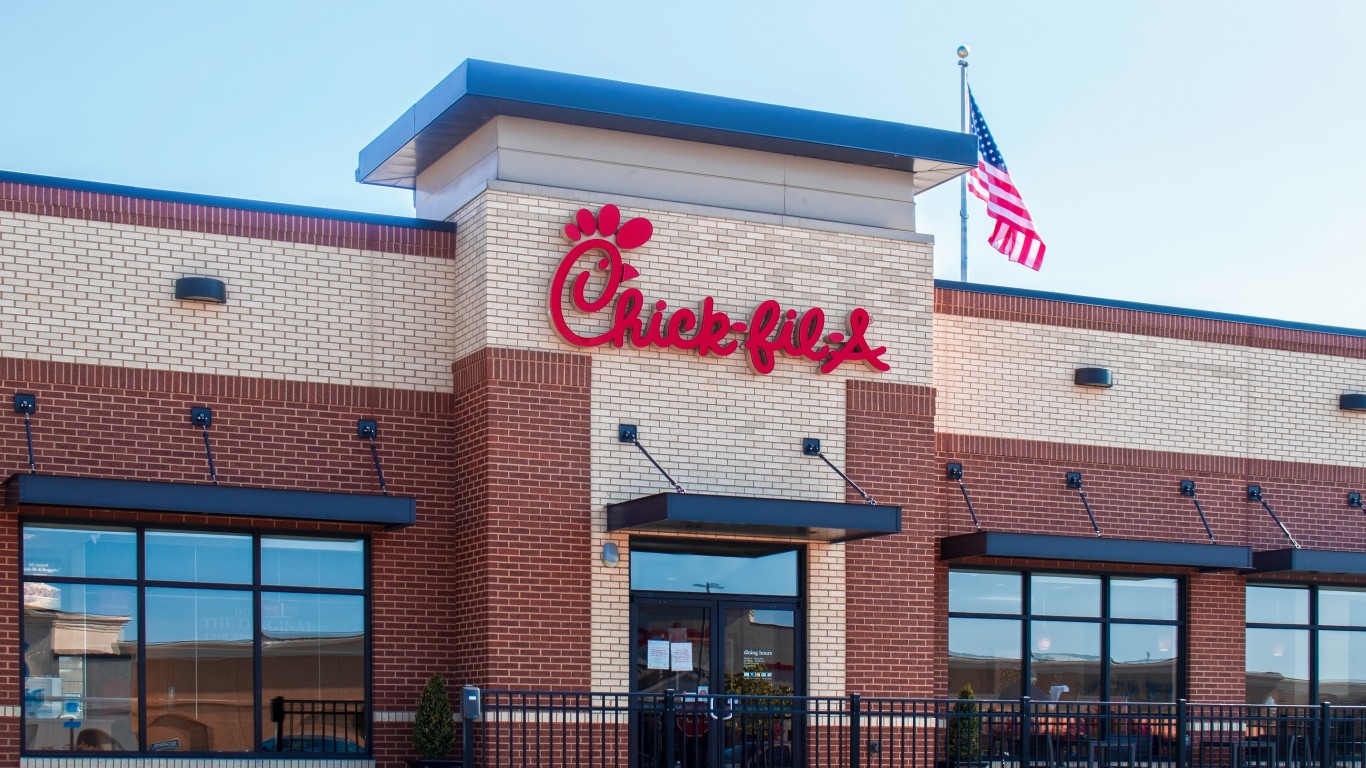
Maybe the biggest reason not to go to Chick-fil-A today is if it’s a Sunday! This fast-food chain is famously closed on Sundays, and it seems to be working out for them. The original decision to close for a day of the week came from the company’s founder, S. Truett Cathy. The history of closing goes back to 1946 and came from Cathy’s experience working in a 24/7 restaurant. Additionally, closing for a day, specifically on Sunday, allowed people to always have a guaranteed day of rest or worship if they desired.
The experience of wanting Chick-fil-A and realizing it is, unfortunately, a Sunday, is pretty universal — everyone’s done it before. That being said, it’s probably a huge benefit for the employees who work at the restaurant.
Even with the sales potential of the company being less, they still somehow drastically outperform every other chain, including those that are open for the full week. The AUV (average unit volume) helps franchises determine how profitable each store location is. For reference, Chick-fil-A makes an average of $6.7 million per location, while McDonald’s manages a measly $3.6 million and is open for more hours and days.
2. You’re Allergic To Peanuts
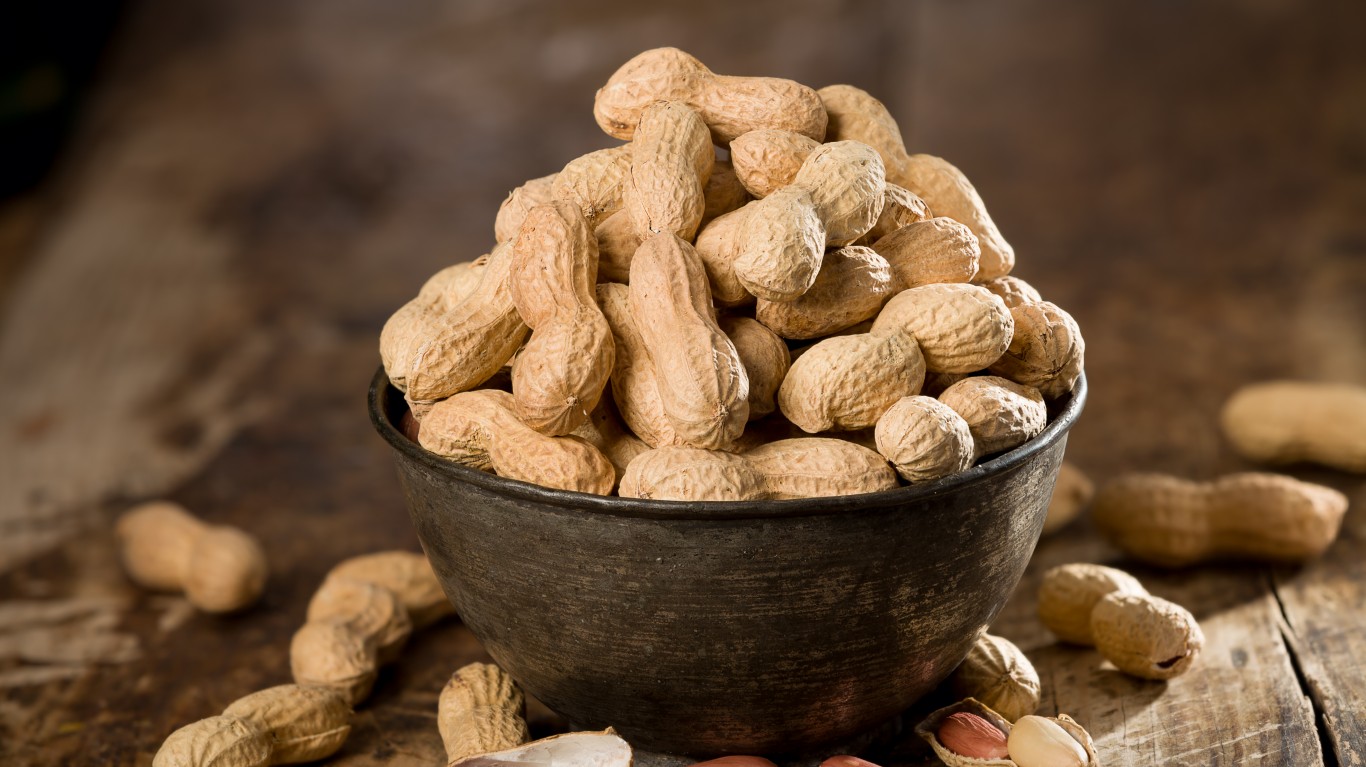
Chick-fil-A is famous for using a special blend of peanut oil for all of their frying. From the fries to the chicken sandwiches they serve, everything with a breaded coating is dipped into the frying oil at some point. Additionally, the back of the restaurant is essentially contaminated with fry oil due to the aerosolization of grease that happens when you bring oil up to high temperatures.
Chick-fil-A’s statement on using peanut oil is pretty clear, they don’t feel that it’s something to worry about:
“For customers concerned about peanut allergies, it may be helpful to know that our peanut oil is refined, bleached and deodorized, which means the proteins in the oil are stripped out during the processing. According to the FDA, highly refined oils, such as highly refined soybean and peanut oil, are not considered major food allergens. But no one knows your own dietary needs better than yourself. Due to the handcrafted nature of our food, variations in our supplier ingredients, and our use of shared cooking and preparation areas, we cannot ensure that our food is free from any allergens.”
Ultimately, the decision on the safety of the food comes down the the consumer. If you have an extreme peanut allergy, it is possible that the fry oil could cause problems.
3. Ethical Concerns on the Company’s History
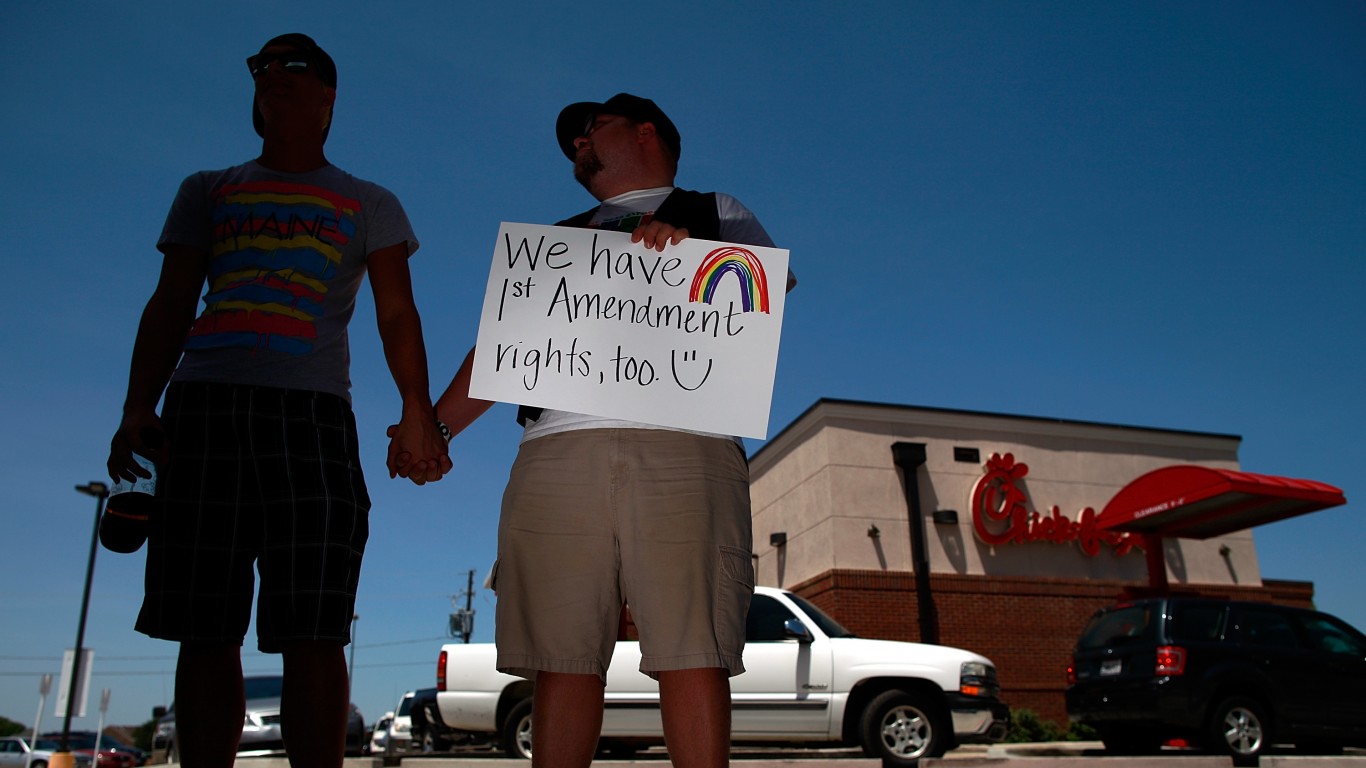
The decision to eat at a restaurant isn’t always about just the food. Sometimes, service, location, or even company history can influence a consumer’s desire to engage with a brand. Chick-fil-A may have one of the most (in)famous examples of bad consumer sentiment, all starting back in 2012.
In 2012, Chick-fil-A’s current CEO, Dan Cathy, publicly expressed his opposition to same-sex marriage. In his words, he stated that the company supported “the biblical definition of the family unit.” The criticism was fast, and the result was immediate. There were national calls for boycotts from LGBTQ+ advocates and allies. The controversy got even worse when it was revealed that Chick-fil-A had donated to organizations known for their anti-LGBTQ+ positions.
Years later, the company announced in 2019 that it would no longer donate to certain organizations with controversial views on LGBTQ+ issues. However, the move didn’t fully appease people, and some argued that Chick-fil-A had not gone far enough in distancing itself from anti-LGBTQ+ causes.
Additionally, there has been some concern about the company’s unwillingness to work with some auditing organizations on diversity, equity, and inclusion at the company. The auditing process gives companies scores (1-100), and many other chains, McDonald’s included, willingly participate in this external auditing.
That being said, many of the statements of the company itself have been walked back, and a DEI (diversity, equity, and inclusion) role has even been added at the company’s highest level. As a result, the other side of the political spectrum began attacking the company for “breaking under pressure”. Plainly put, if you want a political reason to not each Chick-fil-A, from either side of the aisle, you can find one.
4. The Lines Are Too Long
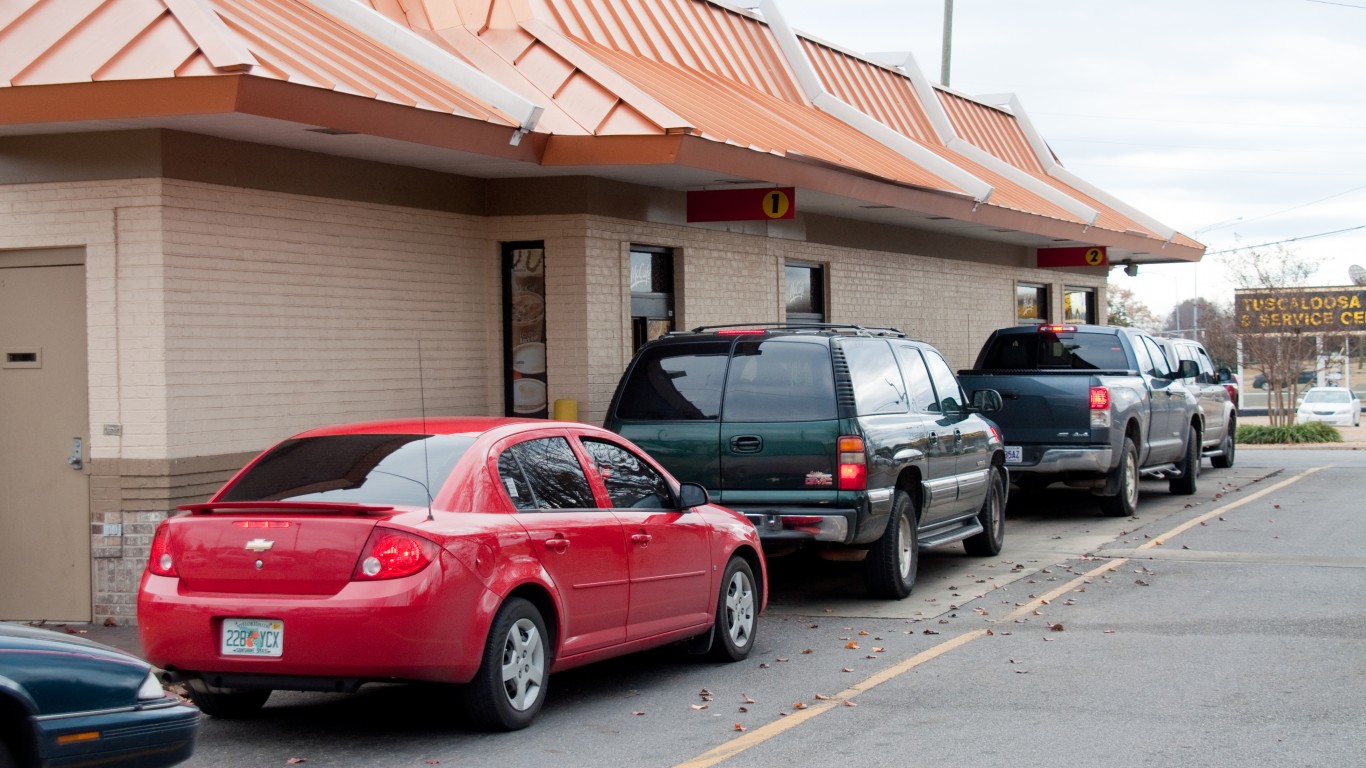
Despite this being a list of reasons to avoid Chick-fil-A, the reality is that the company is one of the most successful chains in the world, and people love to eat there. Almost every store opening is met with huge crowds. Even with locations that have been around for years, cars circle the building, sometimes in a double line, as workers scurry around like ants in their uniforms.
The process is extremely efficient, but you can only get people through a line so fast. Sometimes, Chick-fil-A lines are just too long to make it worth it, especially when you can see the totally empty line at Wendy’s or Burger King in the neighboring parking lot. If absolute speed is your goal, the lunch or dinner rush at Chick-fil-A may be a good reason to avoid the chain.
5. You Avoid MSG
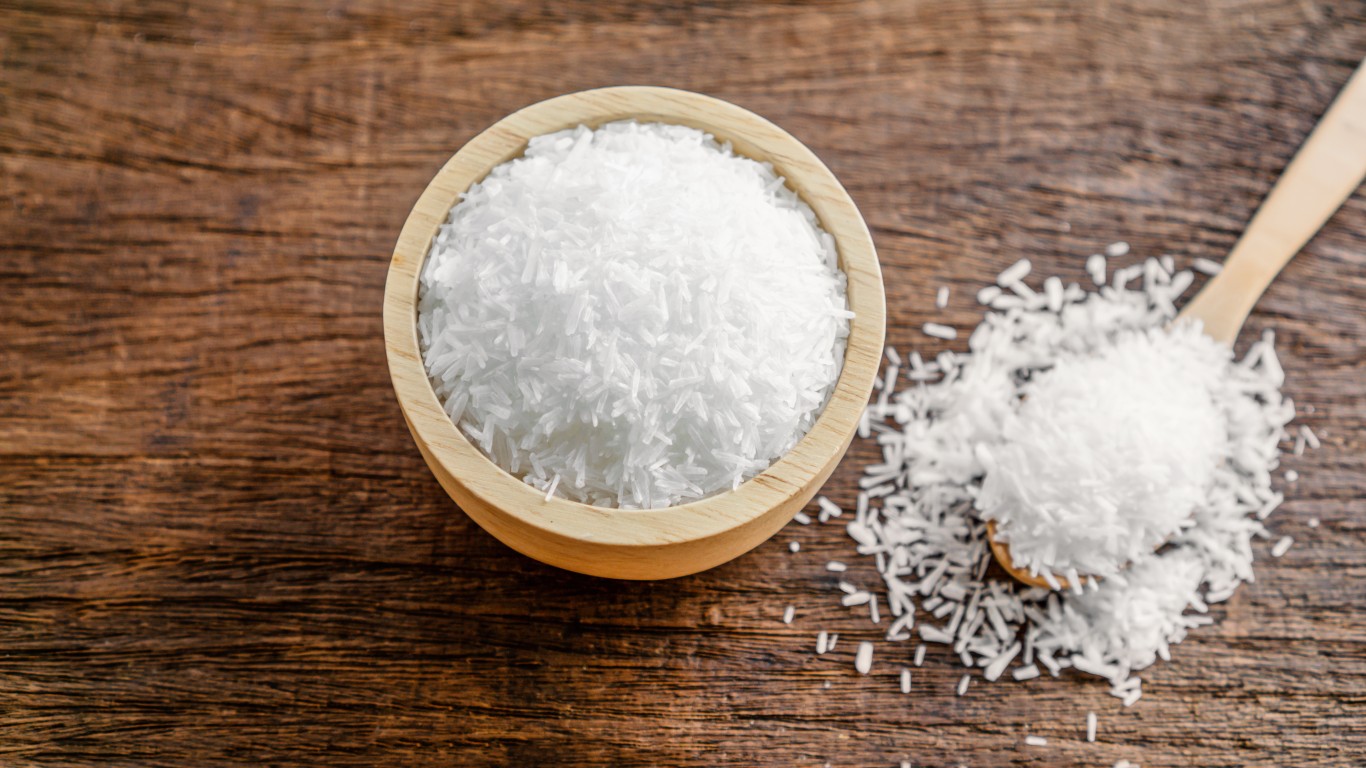
MSG, or monosodium glutamate, as the scientists call it, is a salty additive that many restaurants and packaged goods add to their food to give it depth and “umami.” The research is pretty clear in that the current literature shows little to no adverse health effects within the doses that a human would normally engage with this product. Still, some people don’t necessarily follow the most updated scientific literature on things and feel that they would rather make the choice to avoid MSG altogether.
If that’s the case, MSG may not be the easiest place to avoid it. According to Chick-fil-A’s own website, they use MSG in a few (not all) of their products. Still, there is a high likelihood of cross-contamination, and most of the major food items you order in Chick-fil-A will contain MSG.
6. You Want Something Other Than Chicken
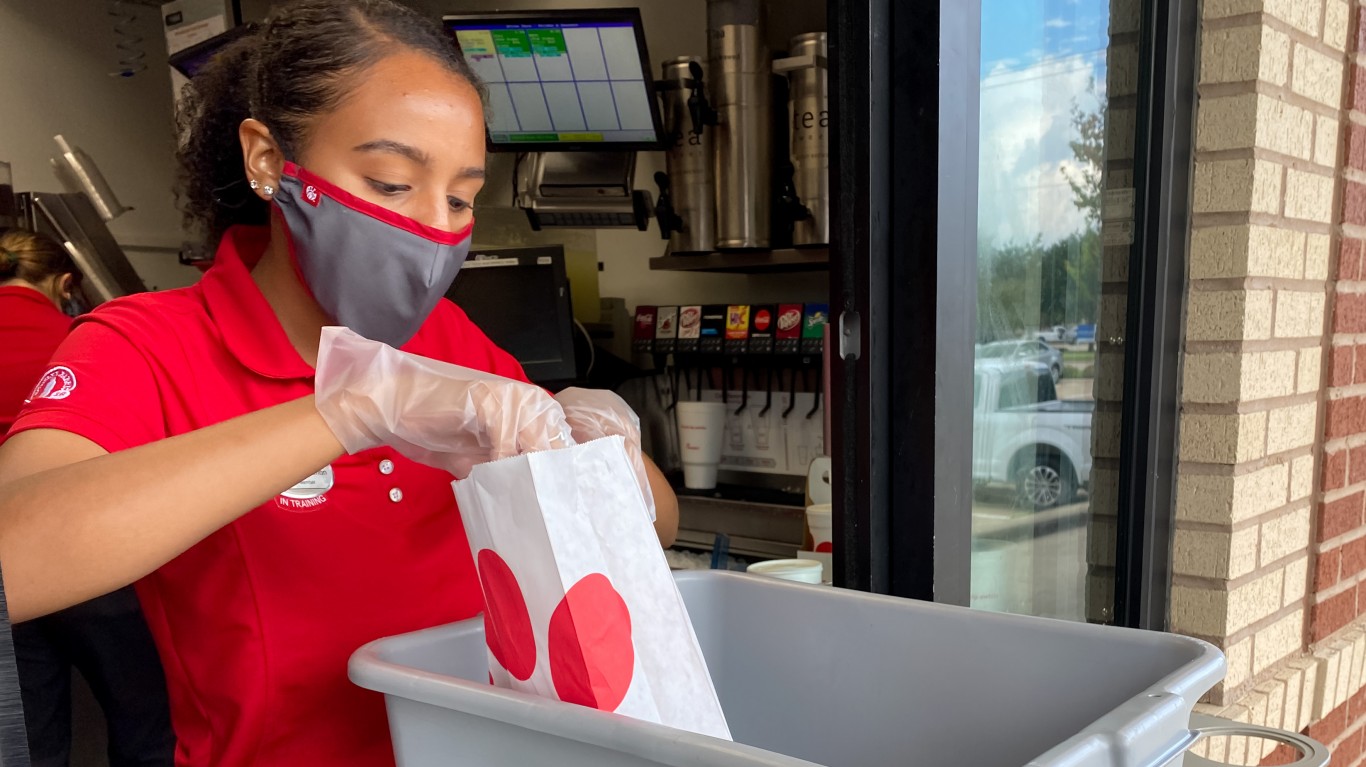
Look, it’s in the name (and literally pictured in the logo). If you aren’t looking to eat chicken but still want a full meal and not just a snack, Chick-fil-A isn’t going to have a lot of options for you. This is the company that had a marketing push with cows trying not to be turned into burgers and the slogan “eat more chicken,” for goodness sake.
Sure, things like fries, salads, and sweets exist, but outside of that, there are precious few items that Chick-fil-A offers that aren’t chicken. Can you order a Grilled Chicken Cool Wrap® without chicken? Sure, but you’re going to get a wrap with lettuce inside and little else.
If you are determined to go to Chick-fil-A and want something without chicken (or are just vegetarian), they do offer some options, as listed on their website. From what we can see, it looks like breakfast is probably the best option, with offerings like biscuits (with eggs and/or cheese), hashbrowns, parfaits, and fruit.
Get Ready To Retire (Sponsored)
Start by taking a quick retirement quiz from SmartAsset that will match you with up to 3 financial advisors that serve your area and beyond in 5 minutes, or less.
Each advisor has been vetted by SmartAsset and is held to a fiduciary standard to act in your best interests.
Here’s how it works:
1. Answer SmartAsset advisor match quiz
2. Review your pre-screened matches at your leisure. Check out the advisors’ profiles.
3. Speak with advisors at no cost to you. Have an introductory call on the phone or introduction in person and choose whom to work with in the future
Thank you for reading! Have some feedback for us?
Contact the 24/7 Wall St. editorial team.

